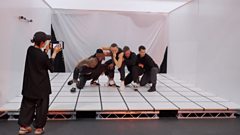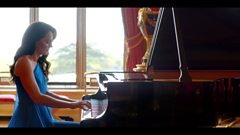
Winner 1974
The nineteenth annual Eurovision Song Contest broadcast from The Dome in Brighton.
Swedish group ABBA won the day with "Waterloo" and went on to become the most famous Eurovision act of all time.
The nineteenth annual Eurovision Song Contest broadcast from The Dome in Brighton, United Kingdom.
Once again the United Kingdom stepped into the breach, hosting the event for the fifth time after 1973 winners Luxembourg declined to hold it for a second year running due to expense.
Swedish group ABBA won the day with "Waterloo" and went on to become one of the only Eurovision acts (along with 1988 winner Celine Dion), to achieve international superstardom, selling more than 375 million records worldwide.
The song was voted best Eurovision song of all time at a 50th anniversary show of the contest in 2005, although interestingly it also received the lowest percentage of votes ever recorded for a winning entry in a final.
France had planned to enter the contest and had chosen both singer and song, but ended up withdrawing after the death of their president Georges Pompidou whose funeral was scheduled on the same day as the competition.
Meanwhile Italy made headlines for refusing to broadcast the contest on their state TV channel because lyrics in their song "Si" (which translates as "yes" in English) were judged to possibly have a subliminal effect on voters in a referendum on divorce taking place in Italy the following month.
It is reported that Portugal's entry "E depois do adeus" was used as a signal by rebel revolutionary soldiers to begin a coup against the Estado Novo regime.
Duration:
Credits
| Role | Contributor |
|---|---|
| Performer | ABBA |
This clip is from
More clips from Eurovision Song Contest
-
![]()
Trailer: Eurovision Song Contest - 2024—2024
Duration: 00:30
-
![]()
The Grand Final is here!—2023, Grand Final
Duration: 03:09
-
![]()
Making of the Postcards—2023, Grand Final
Duration: 03:51





